Ian's recent articles
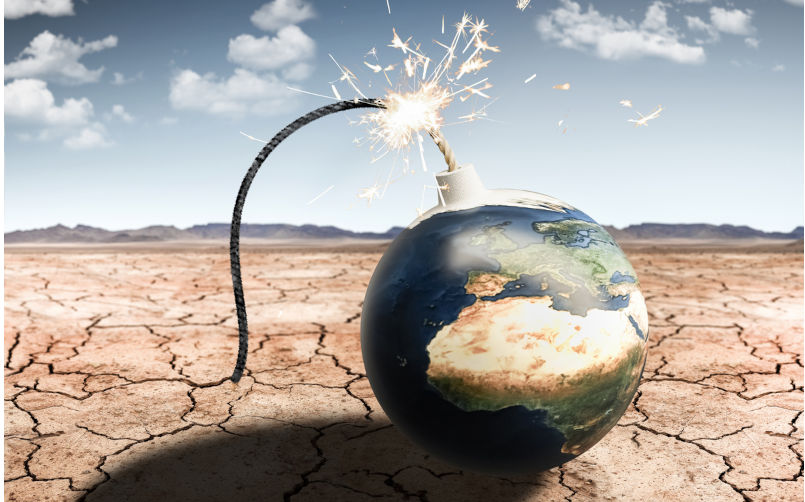
17 January 2026
Best of 2025 - Coalition politicians who can't accept the threat of climate change should resign
Politicians who cannot accept climate change is humanity's greatest threat should have no place in the Australian parliament.

19 November 2025
Coalition politicians who can't accept the threat of climate change should resign
Politicians who cannot accept climate change is humanity's greatest threat should have no place in the Australian parliament.

25 July 2024
The Albanese government has created a climate vacuum, and we will pay the price
Whilst the global impact of climate disruption is rapidly accelerating, and the last, record-breaking year has been extraordinary, public concern in Australia about it is waning, and the government bears much of the responsibility.
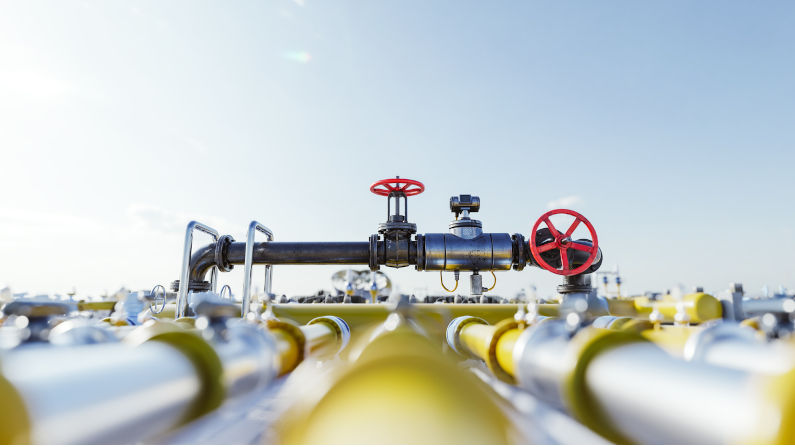
14 May 2024
Labor’s Future Gas Strategy: The greatest capitulation of any Australian government to the fossil fuel industry
Australians should be clear that the “Future Gas Strategy” released last week is not in the national interest. It represents the greatest capitulation of any Australian government to the demands of the fossil fuel industry.

3 May 2024
Climate security risks and Australia’s failure
You can’t solve a problem without talking about it, honestly. Take the impact of climate disruption on security.

13 March 2024
What will it really take to become a Renewable Energy Superpower?
Prime Minister Anthony Albanese makes great play of his ambition to establish Australia as a Renewable Energy Superpower, a laudable ambition if it can be pulled off. But if ambition is to become more than platitudes, the Prime Minister needs to fundamentally reset current climate policy. Rather than sticking to the government’s inadequate 2022 election promises, rapid bold steps are required now.

14 February 2024
Shock as warming accelerates, 1.5°C is breached faster than forecast
If there was shock and awe last week when the Copernicus Climate Change Service announced that global average warming over the last twelve months — February 2023 to January 2024 — had exceeded 1.5 degrees Celsius (°C), it was likely because too many people had succumbed to the predominant but delusional policy-making narrative that holding warming to 1.5–2°C was still on the cards.

26 January 2024
Towards an unliveable planet: Climate’s 2023 annus horribilis
The heat and extreme climate records of 2023 shocked scientists. So where are we heading? Given current trends, the world will zoom past 2°C of warming and the Paris climate goal of limiting warming to 1.5-2°C.

25 January 2024
Humanity’s new era of “global boiling”: Climate’s 2023 annus horribilis
For climate change, 2023 was an “unprecedented” year, “absolutely gobsmackingly bananas” and “scary” and “frightening”. And that was what climate scientists said! The UN Secretary General called it the year in which humanity crossed into a new climate era — an age of “global boiling”.

19 December 2023
COP28 a “tragedy for the planet” as Stockholm Syndrome took hold
Up to 100,000 people — most of whom derive their professional status and income from climate-related politics, advocacy and business — flew into Dubai for the COP28 annual global climate policy-making event, the Conference of the Parties under the United Nations’ climate convention. And the result?

6 December 2023
The Paris Agreement is dead. Australia must change its strategic priorities
As COP28 flounders, the Paris Agreement is dead, and the imperative for emergency action has never been greater. This demands a fundamental change to Australia’s strategic priorities.

23 November 2023
COP-out: Why the petrostate-hosted climate talkfest will fail
After a succession of record-breaking months of record heat including 1.8°C in September, global warming for 2023 as a whole will likely tip 1.5°C, with 2024 even hotter as the effect of the building El Nino is felt more fully. Already hundreds of thousands have died and millions displaced, primarily in countries least responsible for climate change. The annual economic cost globally is in the hundreds of billions.

5 September 2023
Breaking the suicidal impasse
In the last few months events have occurred globally which indicate an astonishing, but not unexpected, acceleration in the pace of climate change. The world has now entered a new era of extremely dangerous climate impacts which are already proving catastrophic in many parts of the world. The factors which hitherto have constrained warming, such as the inertia of the climate system and the cooling effect of atmospheric aerosols, are fading, pushing the global climate system into uncharted territory.

29 August 2023
Fatal mistake: Intergenerational report misleads on climate risks
The Australian Government’s public analysis of climate risk, our greatest threat, is dangerously misleading. The Intergenerational Report 2023 (IGR) is a prime example. By dumbing down the implications of climate change with simplified economic models, the IGR and similar reports are institutionalising the global failure to face climate reality.
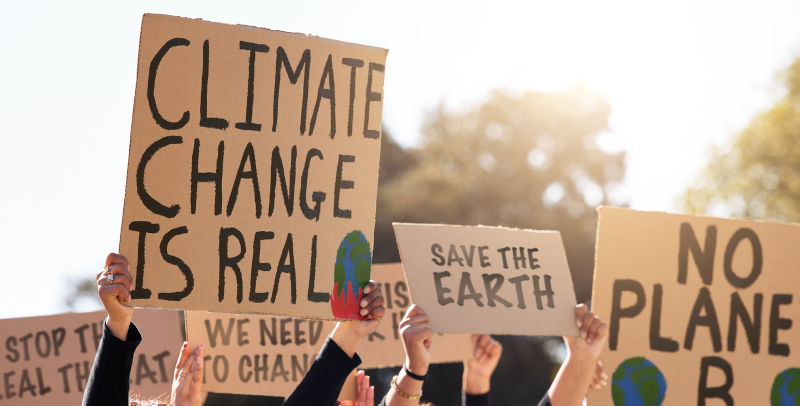
27 July 2023
Stop dissembling: International Climate Emergency Mobilisation is essential – now
Whilst some incremental progress has been made following the 2022 change of Federal government, evidence confirms that both main political parties lack the imagination, courage and leadership to adequately address climate change.

20 June 2023
A profound failure to understand and accept strategic threats
The Defence Strategic Review reflects a profound failure of the Australian leadership to understand and accept the breadth and complexity of the range of strategic threats confronting Australia, the region, and the world. How can a realistic defence policy be determined without first understanding the risks it is supposed to address?

12 May 2023
The budget and climate change: getting our priorities right
The Government’s treatment of climate change in the 2023 Budget is a vast improvement on their conservative predecessors. That said, it continues a pattern of reluctance to face reality on the really big issues which will determine our future as a nation, notably on climate.

6 April 2023
The government has a duty to be transparent about all security risks
The overblown rhetoric on imminent war with China has been justified as the need for the Australian people to be fully informed of threats to the nation. But the same rationale has not been applied to the security threat of climate change, a far greater risk the response to which will be far more costly and extensive.

11 March 2023
A desperate race to avoid locking in the pathway to human extinction
We are in a desperate race to avoid locking in a pathway to human extinction. This requires brutal honesty on the threats we face. Climate change, not China, Russia or the US, is the greatest threat the world faces; it will only be overcome with unprecedented global co-operation.
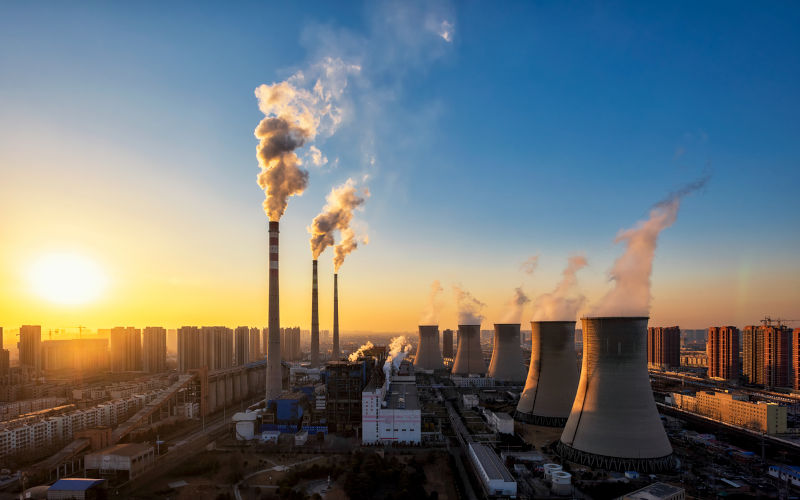
19 December 2022
Is China Australia's biggest security threat?
No, it’s catastrophic climate change. Avoiding that threat needs co-operation with countries like China, not conflict. Australia’s challenge is to get our priorities right and be a constructive player in addressing the existential climate threat that all nations face.

20 May 2022
The Dominoes are falling fast. We face a climate emergency
The belated release of the Great Barrier Reef Marine Park Authority’s “Reef snapshot: summer 2021-22” has exposed the Federal government’s insistence that the Great Barrier Reef (GBR) is not endangered as the lie it has always been.
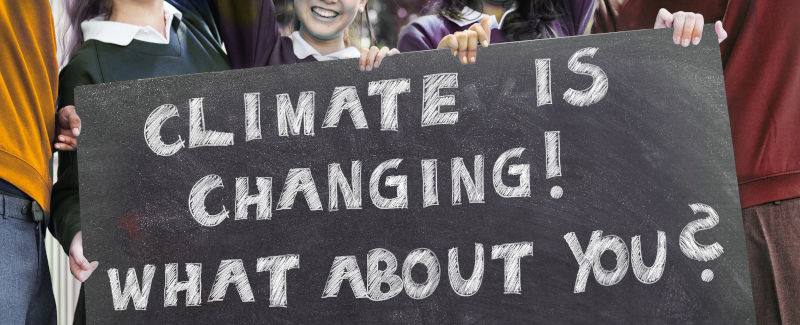
5 May 2022
To the next minister for climate change & energy: The execution plan for climate mobilisation
Climate decisions taken here and globally within the next three years, the term of the new government, will determine the future of humanity. Climate is not a single issue. It is going to change every aspect of our society, so we cannot allow a continuation of the lies and deception around climate policy which the two-party system perpetuates.

4 February 2022
Climate catastrophe now inevitable without emergency action
By relying on consultants for policymaking, the government avoids making any serious contribution to the global effort to minimise temperature rise.

3 February 2022
Morrison's 'Australian Way' climate plan is criminally irresponsible
The Coalition's worship of fossil fuels and inept policymaking are leaving Australia defenceless against its greatest threat: climate change.

25 November 2021
Australia's bare-minimum emissions plan rates zero all-round
Australia’s net zero plan is a techno-optimist thought-bubble: it has an inappropriate objective, no clear priorities, and no realistic costing.

26 October 2021
Climate of unreality: time to call out the National Party
The Nationals have done a disservice to the farmers they claim to champion. They cannot be allowed to lead Australia's response to the climate catastrophe.

22 October 2021
Australia's climate policies are a shambles — will our children forgive us? Part 2
It is too late for an orderly transition to a low-carbon future. It's now imperative that we have scientifically literate, competent leaders acting for the common good.

21 October 2021
The deniers at The Australian with their faux commitment to climate change. Part 1
Not so fast with the good news. To avoid disaster for the planet, we need tougher measures. Nothing short of embracing a war footing will be enough.

7 September 2021
Climate change and politics as usual: A government missing in action
Successive governments' failure to act on climate change means it is now the greatest threat to Australian and global human security.
17 August 2021
Climate Change: will the financial system survive?
One of the few bright spots in an otherwise dismal global response to the escalating climate crisis has been the preparedness of financial market regulators to force their regulated institutions to face up to the implications of climate risk.
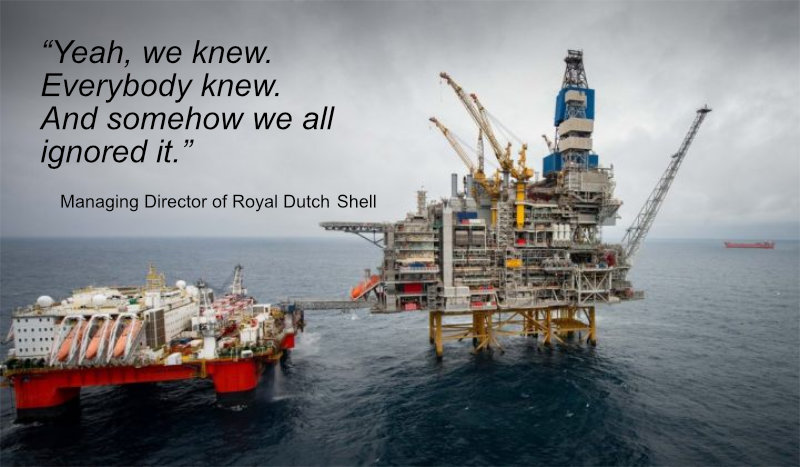
8 August 2021
The net zero emission illusion
With Covid, the government has shown itself manifestly incapable of leading or managing its core responsibilities, beset by corruption and secrecy. The climate challenge is far greater than Covid, and there are no vaccinations or quarantine against climate impacts, which from now on will increase inexorably in the absence of decisive leadership.
25 April 2021
Earth Day 2021: Australia falls further out of line with the world
It is entirely appropriate that President Biden launched his global climate summit on Earth Day 2021. Earth Day began in the US in 1970, triggered by massive pollution across the country, and the need to fundamentally change concepts of industrial development if society was to prosper, rapidly leading by the end of 1970, to the creation of the US Environmental Protection Agency, with bipartisan political support.
17 February 2021
The pandemic is climate change on fast forward
The think tank idea that the world can still make a gradual transition to a low-carbon world by tweaking neoliberalism is totally unrealistic. We need to undertake a massive risk management task, the first step of which must be a brutally frank assessment of the challenge we face. It is something that business, finance and politics continues to avoid. Achieving net zero emissions by 2050, is totally inadequate. It must be reached as soon as possible, ideally by 2030.
5 November 2020
Net-zero emissions by 2050: leadership or climate colonialism? (Canberra Times Nov 2, 2020)
How fast does Australia need to reduce greenhouse emissions to play its fair part in responding to the global climate emergency?
13 October 2020
What must climate and energy policy really achieve?
The Australian Government is dangerously out-of-touch as climate change accelerates and a cascade of tipping points risks unstoppable global warming.
30 September 2020
LobbyLand. Fossil Fuel Lobbyists: Modus Operandi, Impact, Solutions
In Australia, denial mounts. The recent “Gas-Led Recovery” and “Technological Roadmap” announcements of the Morrison government confirm the continued influence of the fossil fuel industry and its lobbyists.
21 August 2020
The Coal Curse – A Review
Governments are abrogating their first responsibility, which is to safeguard the people and their future well-being. The first part of historian Judith Brett’s Quarterly Essay, The Coal Curse - Resources, Climate and Australia’s Future, is a masterly dissection of Australian economic history since WW2.
8 July 2020
The really big and tough issue is the environment says Ken Henry
In last weekend’s Sydney Morning Herald, Jessica Irvine quizzed Ken Henry on his preferences for tax reform. Ken emphasised the critical importance of a clear, settled allocation of roles between the Commonwealth and the States.
22 April 2020
IAN DUNLOP. Fatal Calculations: How Economics has Underestimated Climate Damage and Encouraged Inaction
A rational response from Australia’s leaders to the unprecedented and disastrous 2019-20 megafires would have recognised, first, that they are another warning— and the strongest yet — that the catastrophic impacts of human-induced climate change are here now as lives are lost and livelihoods destroyed. Second, it would accept the need for emergency action.
21 February 2020
IAN DUNLOP. Emergency action on climate change is imperative
The first Australian National Climate Emergency Summit was in Melbourne Town Hall, 14-15 February 2020 - there will be many more.
31 January 2020
IAN DUNLOP. Have we a federal government fit for purpose or the greatest danger to our national security?
The current bushfires are unprecedented in terms of their extent, intensity, fire season length, economic and social impact. They are, without doubt, intensified by human-induced climate change.
7 January 2020
IAN DUNLOP.-The real implications of climate emergency action
The drought and bushfires ravaging large parts of Australia are a foretaste of the climate emergency which, after three decades of inaction by our political and corporate leaders, is locked-in for years to come.
13 December 2019
IAN DUNLOP. A call to the Australia people - demand serious action on climate change before it is too late. PART 2. GOVERNANCE
How good is Australia’s climate leadership? In short, appalling, as the recent disputes on the linkage between climate change, drought, water availability and bushfires confirm only too well.
12 December 2019
IAN DUNLOP. A call to the Australia people - demand serious action on climate change before it is too late. PART 1. CONTEXT
The Real Climate Challenge After three decades of inaction, human-induced climate change is the greatest threat, and opportunity, facing this country, far outweighing the issues dominating our domestic political discourse, such as the US/China impasse, a faltering economy and religious freedom. The world faces the same threat.
16 August 2019
Time for the Coal Industry to Face Reality
The first priority of any government is the security of its people. The greatest threat to that security today is human-induced climate change. Because of the refusal of political and corporate leaders over the last two decades to take climate change seriously, it now represents a threat which will wipe out civilisation as we know it, unless we move to emergency action. We have left it too late to make a gradual transition to a low-carbon world.
8 August 2019
IAN DUNLOP, DAVID SPRATT. Australia’s climate stance is inflicting criminal damage on humanity (The Guardian)
The government opts for conflict rather than change, while suppressing details on the implications of its climate inaction
6 June 2019
IAN DUNLOP. Parliament must treat Climate Change as an Emergency
A year ago, discussion of climate change as an existential threat, and the corresponding need for emergency action, was anathema to those leading debate on climate policy in the political, corporate and NGO incumbencies globally. Incremental change remained the order of the day. But even that was too much for Australia, where political denial of climate change remained dominant.
6 May 2019
IAN DUNLOP. Modelling Climate Change Minutiae
The hysteria surrounding Brian Fisher’s economic modelling of Coalition and ALP climate policies typifies the predatory delay which has bedevilled the development of any sensible response to our climate and energy dilemma since Australia signed the Kyoto Protocol in 1997, namely: “The blocking or slowing of needed change, in order to make money off unsustainable, unjust systems in the meantime”.
2 May 2019
IAN DUNLOP. Stopping Adani is a National Necessity, Economically, Financially and for our Survival.
Central banks, regulators and insurers are starting to acknowledge that the risks of human-induced climate change will have far greater economic and financial consequences than the 2008 Global Financial Crisis. Likewise, global investors and corporations are finally accepting that climate risk is fundamentally changing their business models.
22 April 2019
IAN DUNLOP, DAVID SPRATT. Is the Australian Public Service fit-for-purpose to handle existential climate risk?
The first duty of a government is to “protect the people”, their safety and well-being. Nowhere is this duty more important than in addressing climate change, which now constitutes a near-term existential threat to human civilisation. It is an open, and pressing, question whether the Australian Public Service (APS), and particularly the intelligence services, currently have the capacity to properly consider and assess the climate threat to the people of Australia, and to offer sound advice on action to minimise that threat.
Showing 50 of 68 articles
